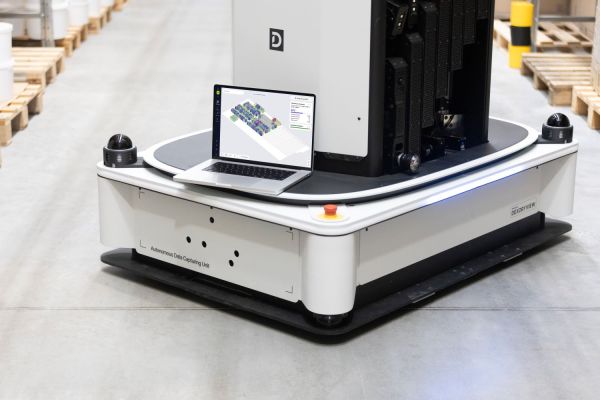Telefónica has been ranked world number one in the Digital Inclusion Benchmark (DIB), which analyses how the most influential tech companies help to promote more inclusive digital economy and society. The company scored 89,5 points out of 100, with a significant difference with the next one, which accredits it as the world’s most influential ICT company due to its “commitment to harnessing digital technologies to address the digital divide”, according to the DIB.
The second edition of the DIB, conducted by the World Benchmarking Alliance (WBA), an independent organisation created in 2018 and supported by an alliance of more than 200 organisations to promote sustainability, was presented today at the Internet Governance Forum (IGF), part of the United Nations Secretary General’s Office.
Eduardo Navarro, Telefónica’s Director Chief Corporate Affairs and Sustainability Officer, who will participate in the event, said: “Digital inclusion is part of our purpose, to make our world more humane centric by connecting people’s lives, and it is our main contribution to the SDGs. Leading the Digital Inclusion Benchmark is a great honour and a responsibility to continue collaborating to reduce technological gaps ensuring that no one is left behind”.
For this reason, he wanted to emphasise Telefónica’s commitment to “continue innovating, looking for the best ways to deploy connectivity, with new technologies and allies, developing solutions that add value to people’s daily lives while addressing social and environmental challenges. Similarly, we will continue to promote training in digital skills to empower them and we will continue to strengthen their trust through the highest ethical standards, humanising technology”, said Navarro.
The DIB analyses four aspects that are decisive in ensuring that no one is left behind in the digital revolution: knowledge and skills to use technology, responsible use and security of digital services, innovation and the possibility of accessing Internet communications and services from any location, by looking at 16 indicators on policies, processes, performance and disclosure.
Telefónica, according to the DIB, is worthy of this first place because it is a pioneer in demonstrating efforts to ensure the safe use of digital technologies, with high standards for cybersecurity: monitors, reacts and reports security incidents. Also, contributes to affordable access through a range of initiatives that provide internet access to vulnerable groups; provides digital skills training programmes, as well as school connectivity and digital education in areas of social exclusion, in more than 40 countries through Profuturo; and is an industry leader in terms of open, inclusive and ethical digital innovation.
Telefónica recognised as a benchmark in climate management by the CDP
Telefónica has been recognised today, for the eighth year in a row, as a leading global company for its action against climate change, as part of the “A List” drawn up by CDP, a non-profit organisation specialising in corporate environmental disclosure and rating.
CDP has assessed the multinational’s actions over the last year to reduce its CO2 emissions, mitigate climate risks and develop a low-carbon economy.
Of the 201 companies included in the “A List”, there are only six global telcos, including Telefónica, and 10 Spanish companies out of the more than 12,000 that have reported to CDP. The firms analysed, for more than 590 investors with assets in excess of $110 trillion, are graded from A to D, depending on how effectively they address climate change.
Paul Simpson, CEO of CDP, comments in this edition how “private sector leadership is essential to securing global ambitions for a net-zero, nature-positive and equitable world. Our A-List highlights those companies that are preparing to excel in the economy of the future by taking action today”.
Committed to sustainability
Telefónica has been committed to sustainability for two decades, and all its actions revolve around the UN SDGs, as is also reflected in its sustainable financing framework, verified by Sustainalytics. Sustainability is a cross-cutting element throughout the Group and focuses on three pillars:
- (E) Building a digital and greener future: Net zero by 2025 in its key markets and by 2040 across its entire footprint, including the value chain. To achieve this, it will continue to reduce direct and indirect emissions under the 1.5°C scenario by 70% globally by 2025 and as an interim target will start neutralising the remaining emissions in its key markets in 2025.
- (S) To help society prosper by fostering socio-economic progress through mobile broadband connectivity to unconnected and/or poorly connected areas in rural areas and contributing to bridging the so-called digital divide through more accessible technology and digital skills education.
- (G) Lead by example to maximize the positive impact across our value chain by moving towards models that facilitate co-responsibility, flexibility and work-life balance with 33% women in management positions by 2024 and zero gross pay gap by 2050.








